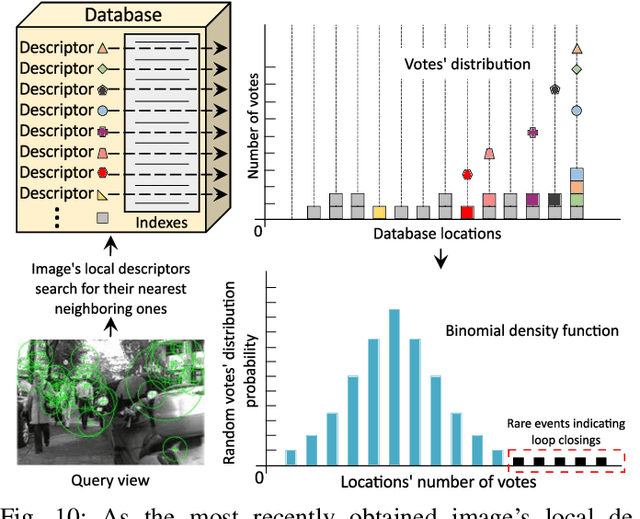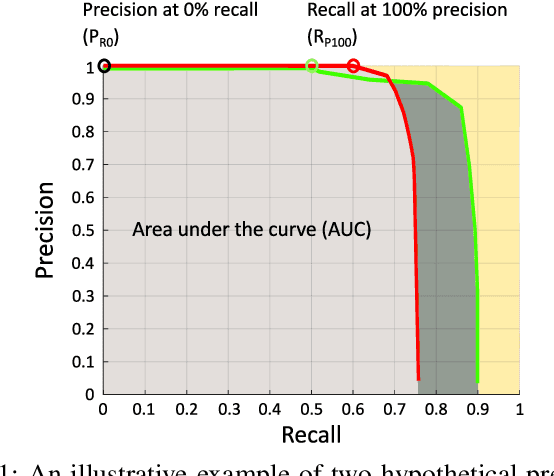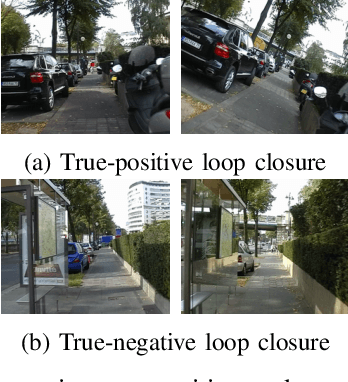The Revisiting Problem in Simultaneous Localization and Mapping: A Survey on Visual Loop Closure Detection
Paper and Code
Apr 27, 2022



Where am I? This is one of the most critical questions that any intelligent system should answer to decide whether it navigates to a previously visited area. This problem has long been acknowledged for its challenging nature in simultaneous localization and mapping (SLAM), wherein the robot needs to correctly associate the incoming sensory data to the database allowing consistent map generation. The significant advances in computer vision achieved over the last 20 years, the increased computational power, and the growing demand for long-term exploration contributed to efficiently performing such a complex task with inexpensive perception sensors. In this article, visual loop closure detection, which formulates a solution based solely on appearance input data, is surveyed. We start by briefly introducing place recognition and SLAM concepts in robotics. Then, we describe a loop closure detection system's structure, covering an extensive collection of topics, including the feature extraction, the environment representation, the decision-making step, and the evaluation process. We conclude by discussing open and new research challenges, particularly concerning the robustness in dynamic environments, the computational complexity, and scalability in long-term operations. The article aims to serve as a tutorial and a position paper for newcomers to visual loop closure detection.
 Add to Chrome
Add to Chrome Add to Firefox
Add to Firefox Add to Edge
Add to Edge